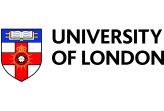Health and Wellbeing
Have you got an emergency?
We've all been taught to call 999 in an emergency, but what really counts as an emergency? And who's the alternative to call?
Each year the 999 service receives hundreds of thousands of calls that are not classified as emergencies. These calls delay the response to urgent emergencies, potentially putting lives at risk.
Non-emergency calls are serious crimes but NOT in progress. This includes calls about property that has been damaged and noise disturbances.
So, in these circumstances who do you call?
.jpg)
101 is the number to call for minor crimes when an emergency response is not needed.
You should call 101 to:
- Report a crime not currently in progress, eg: a stolen car, burglary, or damaged property
- Give information to the police about a crime in your area
- Speak to the police about a general enquiry or contact a specific officer/member of staff
When calling this number you will hear a recorded message saying the police force you are being connected to. This is determined by your location.
Calls to 101 are answered by police officers and staff in the control room of the local police force to ensure all problems are dealt with appropriately.
Calls to 101 cost 15p from landlines and mobile networks, no matter how long you are on the phone.
What about NHS 111:
You should call NHS 111 if you need medical help fast but it is not a life-threatening emergency. This service is available 24 hours a day, 7 days a week and can provide advice on a range of health issues, including flu-like symptoms, rashes, stomach upsets, and minor injuries. The trained advisors will ask you some questions about your symptoms and advise you on the best course of action, which may include visiting a walk-in centre, making an appointment with your GP or going to the nearest emergency department. If you are unsure whether your condition is serious, it is always better to be safe than sorry and seek medical advice from NHS 111.
The service is also available online.

You should call 999 when:
- A crime is happening
- Someone is in immediate danger/there is danger to life
Some examples of life-threatening emergencies include chest pain or tightness that lasts for more than 15 minutes, severe breathing difficulties or choking, severe bleeding that cannot be stopped, a loss of consciousness, suicide attempt, suspected stroke or heart attack, severe burns, and seizures. Have a look at this NHS website for more info.
- There is a risk of serious damage to property
- A suspect for a serious crime is nearby
- There is a traffic collision involving injury or danger to other road users
- Violence is being used or threatened
What if English is not my first language?
Every local police force has access to professional interpreters so they can arrange to translate your call if you have difficulty speaking English.
For more information or if you still aren't sure, visit the Police website.
If you're expecting an emergency service to come to the hall
In this case, please contact reception and advise them that you're expecting an emergency response. They might be able to provide some assistance in the meanwhile, but most importantly, they will be able to assist the paramedics/police to get to your room without any delay.
Help in the hall
Remember that there is always someone who can assist you in the hall. During the day the receptionist and hall management can be contacted and during the evening and weekend, there is always an RA on duty. Make sure you know how to get in touch with them.
Topics
- Read Next
-
 Nutford House - Beginners Embroidery Night!
Nutford House - Beginners Embroidery Night!
 Safeguarding for Mental Health Ambassadors
Safeguarding for Mental Health Ambassadors
 Pilates & yoga at College Hall - weekly class
Pilates & yoga at College Hall - weekly class
 Fancy showing off your favourite dish from home?
Fancy showing off your favourite dish from home?
 Being good at consent means being good at pleasure
Being good at consent means being good at pleasure
 Is being good at consent a deeply political act?
Is being good at consent a deeply political act?
 Being good at consent means being good at rejection
Being good at consent means being good at rejection
 Consent. Why it's more than being a good person
Consent. Why it's more than being a good person
 Consent. It's as simple as a global pandemic!
Consent. It's as simple as a global pandemic!
 In an emergency, would you know what to do?
In an emergency, would you know what to do?
- Popular
-
 What's cooking? Online menu for catered halls
What's cooking? Online menu for catered halls
 Register with a GP
Register with a GP
 Contact your Hall Management team
Contact your Hall Management team
 Be aware of fake police officers!
Be aware of fake police officers!
 How to get in touch with the Warden's Team
How to get in touch with the Warden's Team
 New to banking in the UK?
New to banking in the UK?
 How we stay safer, together
How we stay safer, together
 BLOOM @Senate House - your space to study and socialise
BLOOM @Senate House - your space to study and socialise
 Support Services at your college
Support Services at your college
 Advice From a Graduate: Deadlines & Exams
Advice From a Graduate: Deadlines & Exams

